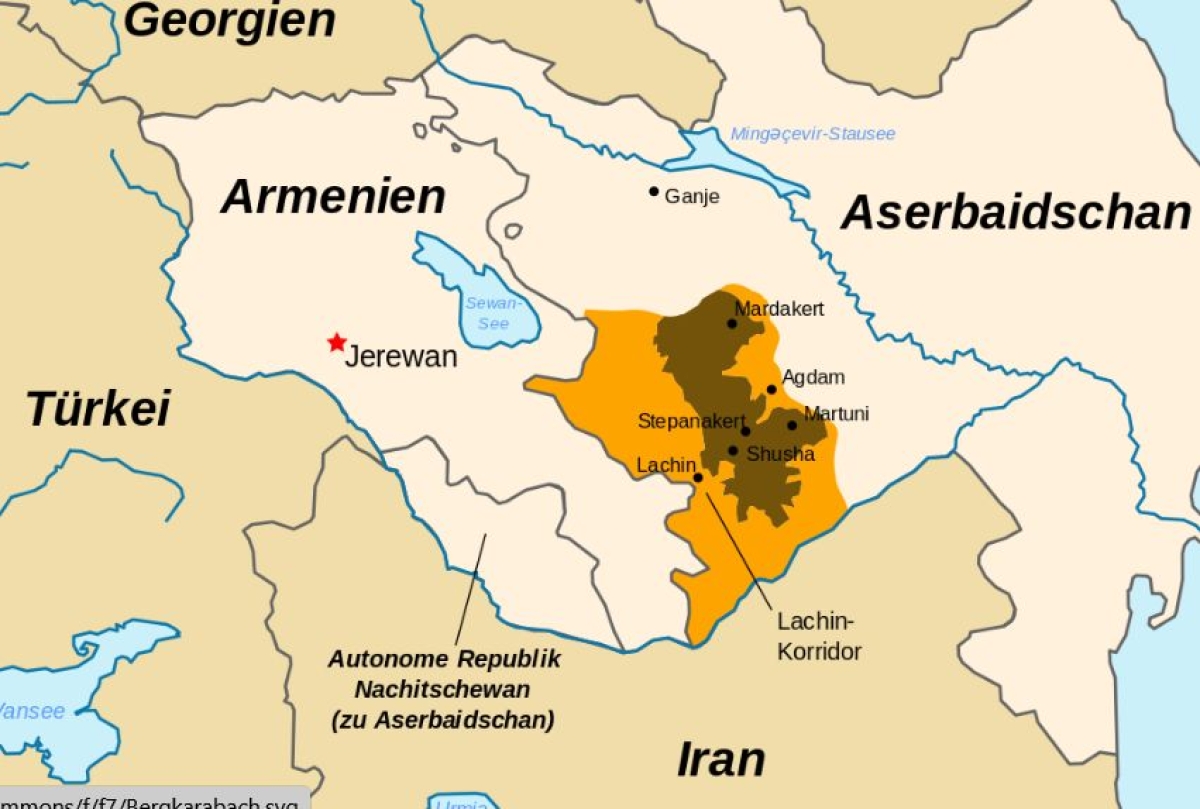Nagorny-Karabach: Armenier fürchten Übernahme durch Aserbaidschan

Bildquelle: Wikimedia Commons
Nach einer weiteren militärischen Eskalation stimmte die Verwaltung der armenischen Enklave in Aserbaidschan einer Entwaffnung ihrer Truppen zu.
Die Folgen sind bislang unabsehbar. Darüber berichtet der Guardian:
Now, even as fighting dies down, life in her hometown in Nagorno-Karabakh is a struggle to survive, with shortages of nearly all critical goods, whole families sleeping rough or scrabbling for food after fleeing their villages, and an information vacuum that has separated loved ones and fuelled fears of the worst in towns occupied by Azerbaijan.
“They have genocidal intentions toward us, they have proved that,” Anna told the Observer by telephone from Stepanakert. “They subjected us to starvation for more than nine months, and then they killed more than 200 soldiers, more than 40 civilians, children. You cannot live in peace with these people.”
In dark towns and villages, with little food and no phone signal, ethnic Armenians in Karabakh are scrambling to find loved ones while many fear what could happen if Azerbaijani soldiers come into their homes before they find a way to escape. “I am a person who is active on social media,” said Anna. “I have also been involved in journalism … It’s very dangerous for me personally to be here. It’s dangerous for anyone to be here.” (...)
Last week, Azerbaijan launched a new offensive, forcing the breakaway republic to agree to disband its territorial defence forces and enter talks that it said would lead to the “reintegration” of Azerbaijani lands.
Stories from ethnic Armenians in Artsakh paint a picture of the disintegration of a state and the deprivations of war. After three decades of self-rule, many have watched their lives collapse in a matter of weeks. (...)
Videos have already appeared online showing Azerbaijani troops firing automatic rifles at civilian homes. Ahead of a potential takeover by Azerbaijani’s forces, people have even begun to destroy local archives to prevent them from falling into enemy hands, said Vardanyan, the former senior official.
The Lachin corridor remains closed. At a police checkpoint near the town of Kornidzor on Friday, a dozen or so men from Karabakh waited for news in the hope that their relatives might have made it to the border. But no one has been let out. One father of two smoked nervously as he looked across the valley into Karabakh, where his children live with their mother. He was trapped outside the region when Azerbaijan launched its blockade nine months ago and has not seen them since.
Andranik, also from Karabakh, was dressed in camouflage as he stood at the police checkpoint. He had managed to move his family out, he said, but was worried for other relatives and friends still trapped in the region. “We have to save them,” he said, shaking his head. “Otherwise the worst will happen to them too.”